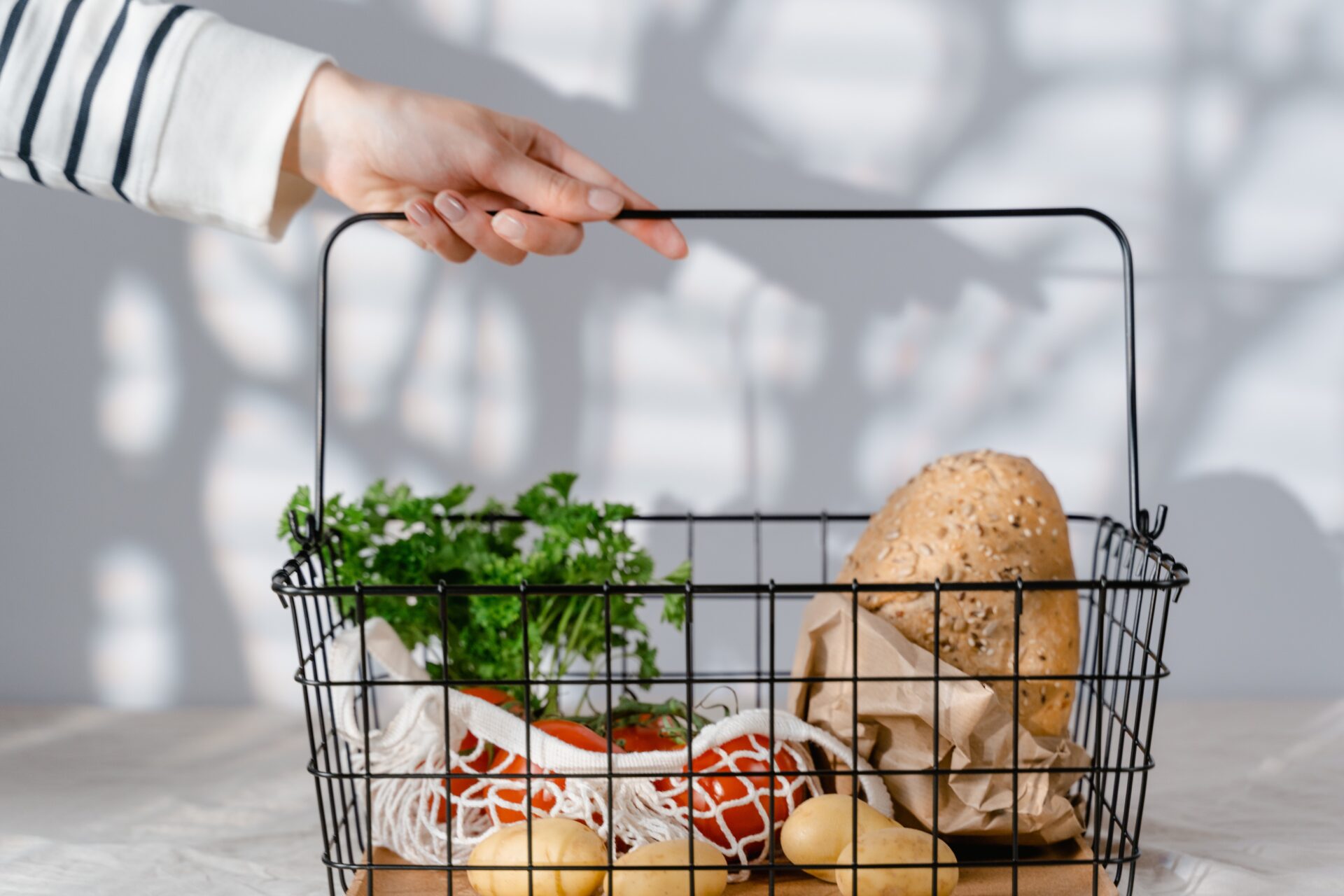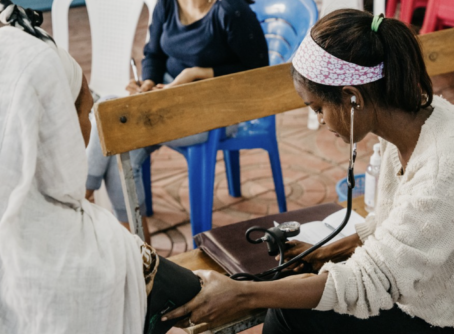
Many young adults worry whether their food will run out before they have the money to buy more. The often-anecdotal picture of a student scrambling to survive off ramen is, in fact, for many, a daunting reality (as Victoria Jones discussed in her Shared Justice article), but this is a problem that extends beyond college campuses. Food insecurity can cause young adults severe problems, from hindering their health to having a significant impact on their academic and employment performance. Young adults who face food insecurity have a higher chance of developing chronic diseases, and often have worse mental and sleep health than their peers. Food insecurity in young adults is also correlated with risky health behaviors such as binge eating, binge drinking, and substance use. For young adults who lack access to adequate food resources, health and well-being threats press in on every side. Solutions to this problem should acknowledge the holistic needs and insecure circumstances young adults in this situation face. This pressing issue needs to be a priority for lawmakers and communities.
Nearly one in four young adults in 2020 faced food insecurity, according to a study from the University of Minnesota’s School of Public Health. In 2022, Purdue University’s Center for Food Demand Analysis and Sustainability reported that compared to other adults, Gen Z adults were almost twice as likely to have faced food insecurity. Furthermore, this is a challenge disproportionately affecting young adults who are Black, Indigenous, or a person of color. According to a survey from the Hope Center, the rate of basic needs insecurity among students of color was 75% of Indigenous, 70% of Black, and 70% of American Indian or Alaska Native students, while 54% of White students experienced food insecurity, housing insecurity, or homelessness. Additionally, Black, Indigenous, or young adults of color reported in 2021 that they faced discrimination, xenophobia, excessive monitoring, and harassment while grocery shopping. Food insecurity is a consequence of inequality in our society, and it further deepens the ongoing disparities that people of color face. To see these circumstances change, there needs to be systemic change.
The Supplemental Nutrition Assistance Program (SNAP) is the most prominent anti-hunger program in the United States. In 2021, SNAP enabled over 41 million low-income people to afford a healthy monthly diet. However, in 2018, GAO reported that 57% of SNAP eligible students at risk of food insecurity did not partake in the program. This gap between the assistance available for young adults and actual assistance exists at least in part because existing programs do not address young adults as a distinct population. Often, young adults get grouped with either adolescents or adults, neither of which captures the unique life circumstances of young adulthood — which are presently far more unpredictable than fifty years ago.
Young adulthood is inherently a period of life filled with a lot of uncertainty and transition, but in our present age, it has become even more challenging. Today, young adults are having a harder and harder time finding entry-level employment with adequate compensation and benefits. In fact, young adults have a more difficult time finding work at all compared to older adults. In the U.S., the unemployment rate of young adults is more than double the general population’s unemployment rate. Both low income and unemployment put young adults in a position for being at risk for food insecurity.
Besides lack of income, food insecurity is also caused by lack of affordable housing, chronic health conditions, and systemic racism. Often, these factors compound in a young adult’s life to create a cycle of food insecurity. For example, the combination of a low income and unaffordable housing can force young adults to choose between food and rent. Over time, poor diet quality can lead to chronic health conditions that make employment more difficult, resulting in a lower/less predictable income. Then, medical bills add another expense that makes it difficult to afford a quality diet. This kind of instability in a young adult’s life, particularly when they lack a community safety net to help meet their needs, creates pervasive anxiety and stress, driving young adults to risky coping behaviors such as binging and drug use. This creates a perfect storm for young adults in an age of great vulnerability. In these situations, young adults need immediate food resources, but also long-term infrastructure for a quality diet. It’s important to meet young adults in not just their immediate needs, but also equip them for long-term food security as they transition to adulthood.
To this end, social institutions must do more to provide structural support for young adults’ food needs. The public justice framework reminds us that solutions lie not only in the hands of the state and federal government, but also in the hands of individuals, universities, nonprofits, churches, and the rest of civil society. The Center for Public Justice’s Guideline on Welfare states: “The call to be a ‘neighbor’ — to help those who are in need — is addressed to all people and institutions. Receiving assistance should enable those in need to reach or return to self-sufficiency and be in a position to help others.” Self-sufficiency comes with the responsibility for those in need. We see this in Matthew 25:40: “And the King will answer them, “Truly I say to you, as you did it to one of the least of these my brothers, you did it to me.” As Christians, we are called to advocate for the vulnerable young adults experiencing food insecurity.
One way this could materialize is through tailoring existing community food resources to young adult populations. Young adults today follow less traditional paths of employment and family-building which may affect their access to local food banks or food pantries. Having more flexible hours at food centers could expand access to young adults working odd hours or caring for children. Furthermore, young adults most often seek resources online first. Ensuring that community food resources are easily searchable online could better connect young adults with the appropriate help they need.
A more rigorous approach to meeting young adults’ food needs could come through employers. Miroslav Volf, in the book Public Faith in Action, argues that every individual should have the opportunity to earn a fair and living wage. Employers should make sure that all of their employers earn adequate income for survival and flourishing. Going even further, employers could take up greater responsibility for the communities they are in and the particular food circumstances that surround their workplace and employees’ families. Discover’s recent call center in Chatham, Illinois, is a great illustration of the way this responsibility can be exercised. The bank and credit card company deliberately invested in the Chatham community by providing fair employment opportunities to an area facing high levels of unemployment or low income. The call center embraced its function as a community center by offering holistic support to its employees, including providing free meals. By offering both short-term resources (meals) and long-term structures (fair wages and employment experience) to their employees, Discover demonstrated their responsibility as an employer to invest in and support their employees.
For young adults who are unemployed or employed, SNAP is a good resource, but it could provide more effective support by having a more streamlined and accessible application for the young adult population in particular. Another way assistance programs could have a more specific approach for young adults facing food insecurity is by combining their programming with community initiatives focusing on screening for and treating substance use/abuse, binging, and other dangerous health habits. Communities should also engage in supporting young adult health by providing education in food skills — for example, offering cooking classes at local community centers. Christian young adults should also take up the responsibility to combat the food insecurity that their peers face. Volunteering at local food banks and food pantries is a great place to start. It allows volunteers to engage alongside peers dealing with food insecurity and understand more of the reality of not knowing where your next meal is coming from. Building these relationships and compassion is critical for being a caring advocate for the needs of young adults dealing with food insecurity.
Young adults are our future, and the government and non-governmental organizations must be focused on supporting them and setting them up for success. Therefore, ensuring young adults have the security of their basic needs being met should be a priority for lawmakers and communities.
Madeline Pannell is the Shared Justice Fellow at the Center for Public Justice. She is part of the Capital Fellows Program in McLean, VA, and recently graduated from the University of Virginia with a B.A. in East Asian Studies. Prior to her work at CPJ, she worked for the Center for Digital Editing at UVa, developing innovative digital-historical projects.
Sofia Timina is a faith-based child care research fellow at CPJ. She recently moved to the D.C. area to be part of the Fourth Fellows program. She graduated from Gordon College in May with a B.A. in international affairs & political science.





